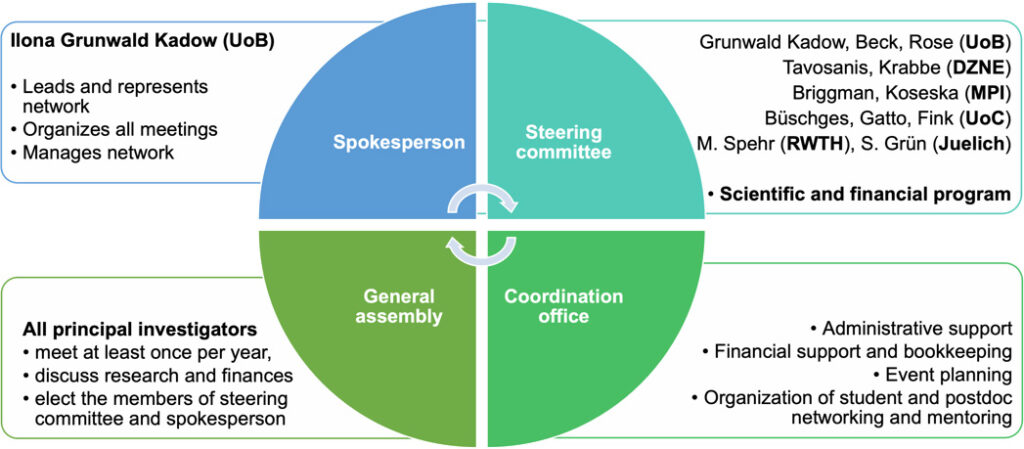Steering Committee of the iBehave Network
Scientific steering committee members of the network are experts in the relevant fields of neuroscience, computational ethology and clinical research of brain and behavior, who provide scientific guidance and oversight for the network’s activities and projects.
They are responsible for ensuring that the project is conducted in accordance with established scientific principles and methodologies, and for making recommendations regarding the direction and scope of the project.
Members of steering committee come from all partner institutes of the network and have diverse backgrounds and areas of expertise. They work closely with project’s spokesperson and other stakeholders to develop research plans, monitor progress, make decisions regarding the allocation of resources and elect the members of the committee and spokesperson.
In nutshell, we work closely to ensure that the scientific goals of a project are being met and that the project is making progress towards its objectives in an efficient and effective manner.

Prof. Dr. Ilona Grunwald Kadow
Spokesperson of the iBehave Network University of Bonn

Prof. Dr. Heinz Beck
University of Bonn

Prof. Dr. Tobias Rose
University of Bonn

Dr. Sabine Krabbe
German Center for Neurodegenerative Diseases (DZNE)

Prof. Dr. Gaia Tovasanis
University of RWTH Aachen

Prof. Dr. Marc Spehr
University of RWTH Aachen

Prof. Dr. Kevin Brigmann
Max Planck Institute for Neurobiology of Behavior (MPINB) - Caesar

Dr. Aneta Koseska
Max Planck Institute for Neurobiology of Behavior (MPINB) - Ceasar

Prof. Dr. Sonja Grün
Jülich Research Center

Dr. Graziana Gatto
University of Cologne

Prof. Dr. Ansgar Büschges
University of Cologne

Prof. Dr. med. Gereon Rudolf Fink
Research Center Jülich
Management Structure of the iBehave Network
Our research network has a management team that oversees the day-to-day operations of the network. This team includes spokesperson and scientific coordinators who provide overall leadership and strategic direction for the network, as well as assist for research projects management, administrative work and offer support to young researchers and maintain iBehave social media presence.
The management team works closely with a scientific steering advisory board that provides guidance and oversight on the network’s scientific activities and research projects. In addition, iBehave network has 49 research groups that focus on specific research areas of brain and behavior research. The management structure of the iBehave network is designed to facilitate collaboration and coordination among network members and ensure that the network’s activities and research projects are effectively advancing its scientific objectives.


